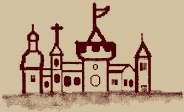Robert L. Cash
492 BG
856 BS
June 20, 1944
born Nov 13, 1924, Okmulgee, Ok, flew as TSgt and 1st Radio Operator and gunner from North Pickingham, England, in the 492nd BG, 856 BS, and was shot down over Baltic Sea, midway between the Islands of Rügen and Bornholm, June 20, 1944, on way to Politz, Germany. Flying with a crew of nine, he prove to be the sole survivor after liberation. After two months spent in Luftwaffe hospital in Greifswald, Germany, was sent to Wetzlar for interrogation and then to Stalag 6, located at St. Wendel, deep in the Saar Valley. After about one month and near liberation by Gen. Patton, spent six days and nights aboard a 40 & 8 box car, on way to Stalag 6 located near Grosstychow, arriving Sep 10, 1944.
Five months later on Feb 6, 1945, they marched out of camp and spent 72 days marching in circles and ultimately westward, through camps at Neubrandenburg, Fallingbostel and others as they continued western march for a small community some 25 miles outh of Hamburg, known as Melbeck. Here they were liberated April 20, 1945, by General Montgomery and the 11th Armored Division of the British Forces. Some 600 to 700 miles covered marching that 72 days, left him with 111 lbs. hanging on his 6'-4'' frame. Some three weeks in a British hospital at Westscott, England, fattenend him jup enough to return home June 10, 1945.
Received formal education at University of Oklahoma, in Petroleum Geology, graduating June 1949, and after 40 years in the business, he continues his profession as a consultant and oil producer in Dallas, TX.
from: American Ex-Prisoner of War, Paducah, Kentucky, 1991
Dear Roland-
Not much to add from some of your messages to me from others reports. I arrived it seems to me in late July or early August to a long barn-type structure which housed some 500 + kreiges. Facilities were sparse to none, including what little food we received.
The most important time in my memory, was one night we heard artillery fire which seemed to be moving, thus we discerned it to be tank fire. We were correct as we later found out General Patton was trying to make his way into Germany from Metz not far to the West. This occured less than 30 days after my arrival, and I thought my incareration was going to be brief, but not to be. That night or early the next morning we were hearded in to 40/8 boxcars,some 50 to 60 men to a car, located in the ends of each car, with guards located in the door areas with barbed wire separating them from us. No effort to mark the train with white crosses or POW's was made and we were moved NW thru Saarbrucken, Frankfurt, Berlin and other scenic locations during the six or seven day trip to Stalag Luft lV, Grosstychow,in Poland, which was in the hands of your countrymen.
At every stop in the above mentioned cities, we stopped and all the guards quickly locked us in the cars and they made there way to bomb shelters. Thank God we were never hit by bombs, but the last day of the trip a P-47 straffed the train, not knowing who was aboard, and unfortunately killed several krieges in the last car.That train trip was one of the most inhuman acts perpetrated on us to that time. Most every one had dysentary and we were not allowed off the train to take care of ourselves which meant we did it in the face of our fellow krieges as there was not enough room to even sit down at one time. .
I'm sure you have heard enough of this, as it didn't apply to details of the St. Wendel camp. Sorry but I tried to expunge most of this from my mind for many years, and go on with my life, therefore my memory is quite vague after some 55 years.
Bob Cash
Kriegsgefangennummer #4026

